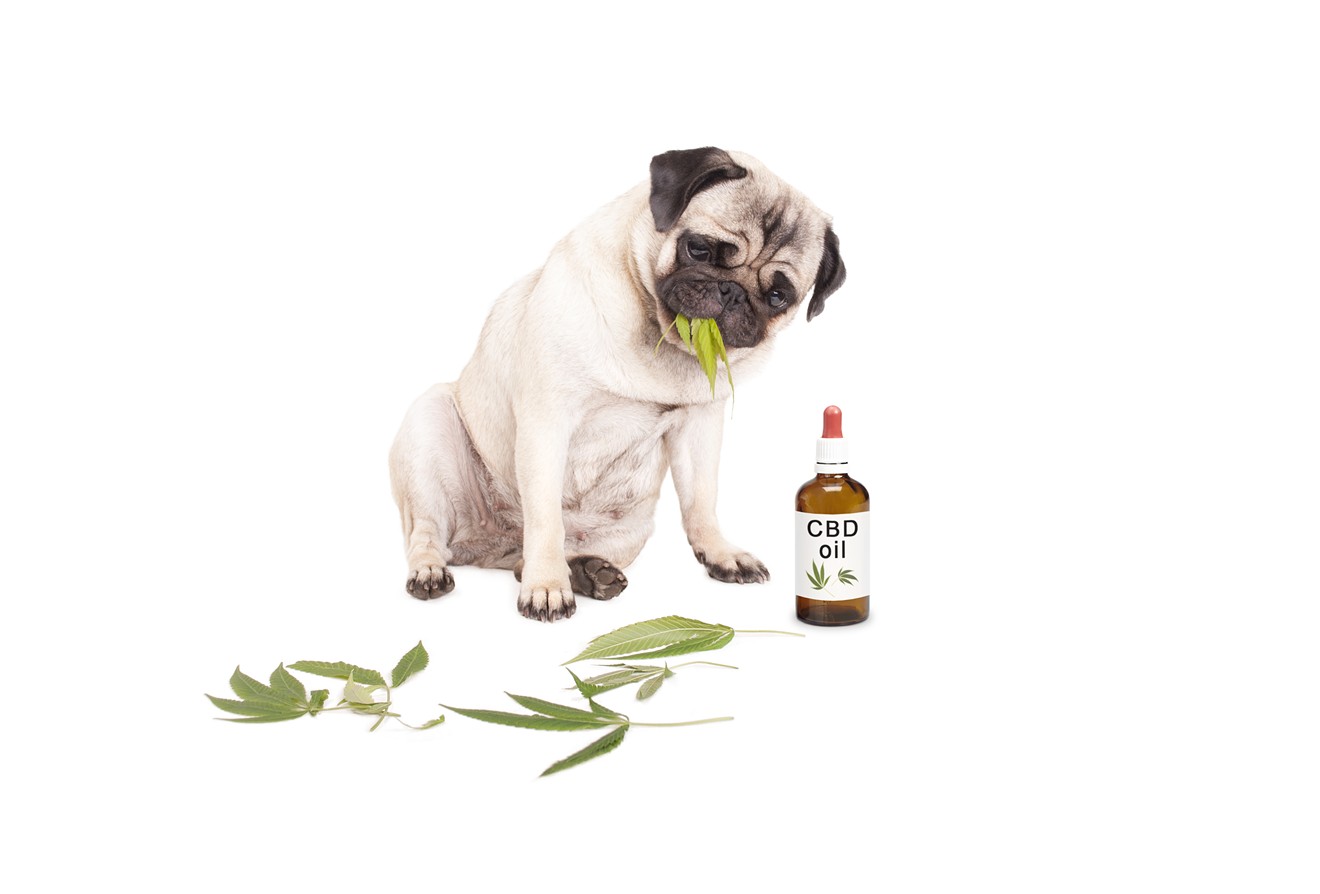The debates over the effectiveness of CBD oil and whether it should be legal are argued without an end in sight. While the oil has seen success in consumers looking for a way to ease anxiety and chronic pain, there is one silent group quickly becoming a target market for CBD oils — household pets.
CBD oils for cats and dogs can be purchased alongside the similar products for humans, but with an animal-friendly spin. For dogs, the CBD treats are the same size and consistency of a milk bone, with advertised calming effects. The same goes for chewy cat treats that are sold in bags that don’t look out of place next to the top brands of the non-CBD oil variety. Alternatively, the oils themselves can be sold in pet-friendly flavors, like beef or chicken, to be applied directly in the pet’s mouth or on their food.
One such company is CBD Kratom, operating out of three locations in DFW. The St. Louis-based company has been selling CBD products since 2014, and its presence in major cities such as Los Angeles and Chicago has them familiar with a diverse mix of clientele. Dafna Revah, co-owner of the business with her husband, thinks there are still many misconceptions about the alternative treatment.
“I think there’s still always questions about whether it gets you high or whether or not it has any psychoactive effects,” Revah says. “We have a lot of people who spend their first trip to our stores, and they spend about 30 minutes to an hour browsing the store learning about what CBD is. So I think that’s still the biggest misconception — is that they don’t even necessarily know what CBD is.”
For a human, the described effect of CBD oil is far from a psychoactive “high” that the activated THC from smoking marijuana would give the body. The likely candidate for CBD is someone seeking an alternative method to calm anxiety or lessen pain without the usage of narcotics. Revah says that while a wide variety of people come into their stores, the average customer is a bit older than a millennial, usually 35 and older.
Similarly, the effect on cats and dogs is supposed to be soothing and relaxing without heavily sedating.
tweet this
Similarly, the effect on cats and dogs is supposed to be soothing and relaxing but not heavily sedating. The purported calming feeling stemming from CBD oils varies animal to animal, but the treatment is primarily used for pain. Likely candidates are dogs and cats with limited movement from arthritis, ones diagnosed with cancer or suffering from other major illnesses in their later years.
“You would be looking at a lot of the older animals,” Revah says. “That’s what we’ve seen the most of. People wouldn’t necessarily give it to their pet or their dog when they’re puppies for instance, because they’re still developing. A lot of it, because we’re in the city of Chicago, and even in Dallas and St. Louis, a lot of it is for separation anxiety. Dogs who’ve spent all day in the apartment kind of thing.”
The American Veterinary Medical Association has yet to make an official declaration on CBD oils and its usefulness in animal treatments. Studies on the effects have been limited, and the products have not been FDA approved for consumption.
“Cannabis-derived products that have been suggested as therapeutic agents for use in animals to-date have not followed the traditional path to FDA approval," the AVMA's website reads. "Relatedly, although cannabinoids such as CBD appear to hold therapeutic promise in areas such as the treatment of epilepsy and the management of pain and inflammation associated with osteoarthritis, the available scientific evidence pertaining to their use in animals is currently limited. While findings from a few well-controlled studies have been published, much of what we know is related to anecdotal or case reports or has been gleaned from studies related to use in humans, including the study of animal models for that purpose. The AVMA continues to encourage well-controlled clinical research and pursuit of FDA approval by manufacturers of cannabis-derived products so that high-quality products of known safety and efficacy can be made available for veterinarians and their patients.”
Revah says that based on what they’ve seen vets recommend, a general rule of thumb when dosing an animal is 1 to 2 milligrams per 10 pounds, but questions regarding your individual animal should be thoroughly discussed with your veterinarian.
“We always suggest to people to consult a physician for themselves or to consult a veterinarian just to get more information,” Revah says. “I don’t know if it’s surprising or not, but I think a lot of veterinarians and physicians are now well-versed in CBD, or they’re looking into it themselves, so we actually do get a lot of people who have said that their vet has recommended they visit one of the stores.”











